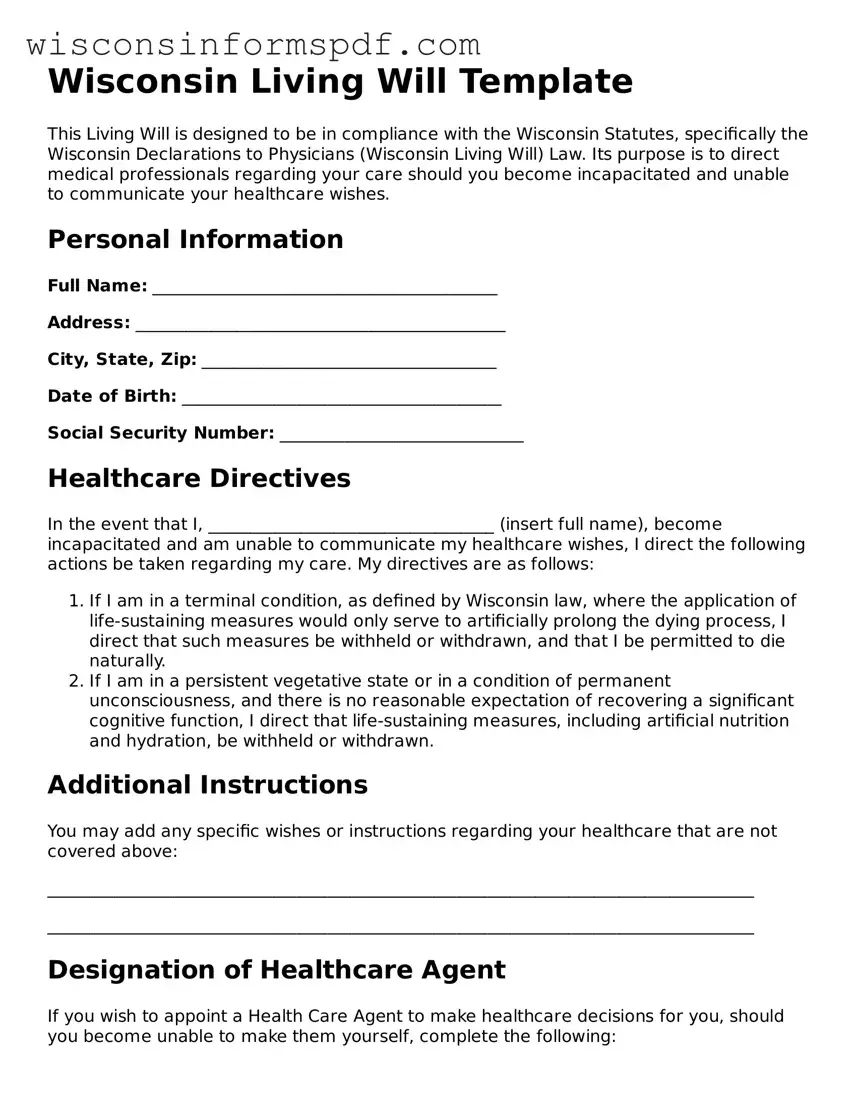Wisconsin Living Will Template
This Living Will is designed to be in compliance with the Wisconsin Statutes, specifically the Wisconsin Declarations to Physicians (Wisconsin Living Will) Law. Its purpose is to direct medical professionals regarding your care should you become incapacitated and unable to communicate your healthcare wishes.
Personal Information
Full Name: _________________________________________
Address: ____________________________________________
City, State, Zip: ___________________________________
Date of Birth: ______________________________________
Social Security Number: _____________________________
Healthcare Directives
In the event that I, __________________________________ (insert full name), become incapacitated and am unable to communicate my healthcare wishes, I direct the following actions be taken regarding my care. My directives are as follows:
- If I am in a terminal condition, as defined by Wisconsin law, where the application of life-sustaining measures would only serve to artificially prolong the dying process, I direct that such measures be withheld or withdrawn, and that I be permitted to die naturally.
- If I am in a persistent vegetative state or in a condition of permanent unconsciousness, and there is no reasonable expectation of recovering a significant cognitive function, I direct that life-sustaining measures, including artificial nutrition and hydration, be withheld or withdrawn.
Additional Instructions
You may add any specific wishes or instructions regarding your healthcare that are not covered above:
____________________________________________________________________________________
____________________________________________________________________________________
Designation of Healthcare Agent
If you wish to appoint a Health Care Agent to make healthcare decisions for you, should you become unable to make them yourself, complete the following:
Health Care Agent's Full Name: _______________________________________________
Relationship to You: ________________________________________________________
Address: ____________________________________________________________________
Primary Phone: __________________________ Alternate Phone:: _________________________
Signature
This document reflects my wishes and I understand its contents. It is executed voluntarily and without any undue influence.
Date: _____________________ Signature: __________________________________
Witness #1
Name: ________________________________________
Signature: ___________________________________
Date: ________________________________________
Witness #2
Name: ________________________________________
Signature: ___________________________________
Date: ________________________________________

